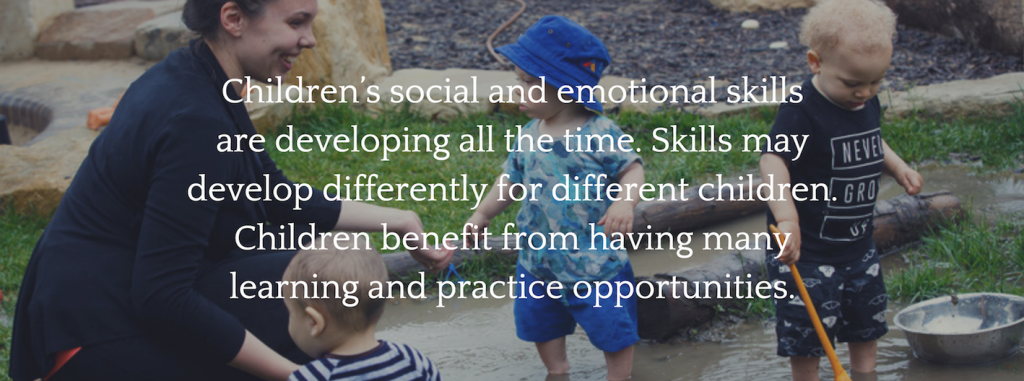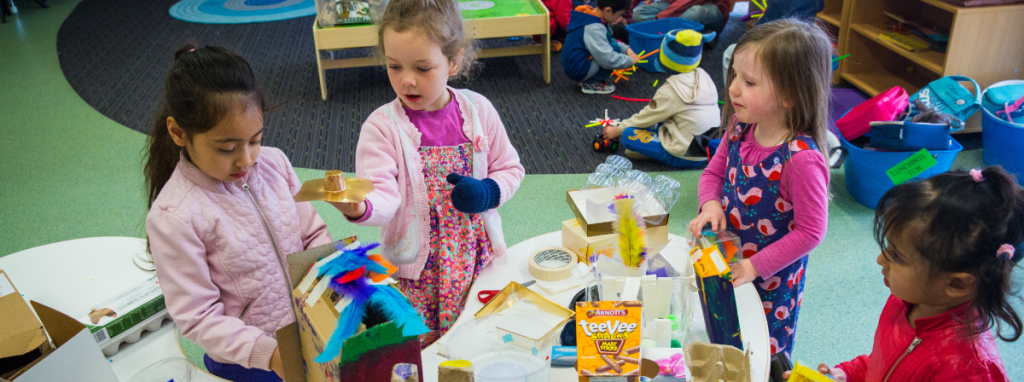Babies are born communicators and are capable of experiencing and expressing a wide range of emotions. Through their many positive interactions with caregivers, they learn to feel good about themselves and to enjoy relating with others. They also learn how to manage a range of feelings and to communicate effectively to get their needs met.
As babies grow into toddlers, they can manage more things by themselves but still need guidance and support from their caregivers. Young children often imitate others and build their self confidence by ‘helping’ during everyday experiences. They also adapt their behaviour according to their caregivers’ responses and are learning ways to cope with conflict and to solve problems through their relationships with significant adults in their lives.
As children grow, they develop their social and emotional skills through a wide network of social relationships including other adults and children. Supported by their increased language, thinking and planning capabilities, they are more able to wait for things they want, to negotiate solutions to everyday problems and make decisions for themselves and with others.

Birth to school age is the period of greatest growth and development. The early childhood years are not only a time for taking first steps or for saying first words. They are also when, through their relationships with others, children are building expectations about their world and the people in it and are developing their first:
These first skills are very important as they form the foundations for children’s ongoing development and affect their mental health and wellbeing, now and into the future.

Early learning services can assist children in their social and emotional development in a number of ways, including;
Further reading
To register your early learning service or school with Be You, click here or contact beyou@earlychildhood.org.au
Be You provides educators with knowledge, resources and strategies for helping children and young people achieve their best possible mental health. This article was first published by KidsMatter (now known as Be You) in 2018.

Nurtured Education & Care acknowledges the traditional custodians of country throughout Australia and their connections to land, sea and community. We pay respects to elders past, Present and emerging and extend that respect to all Aboriginal and Torres Strait Islander people.
Privacy PolicyTerms & Conditions©Nurtured Education & Care 2020 Designed by The Branding Lab
Privacy Policy
Terms & Conditions
©Nurtured Education & Care 2020
Designed by The Branding Lab